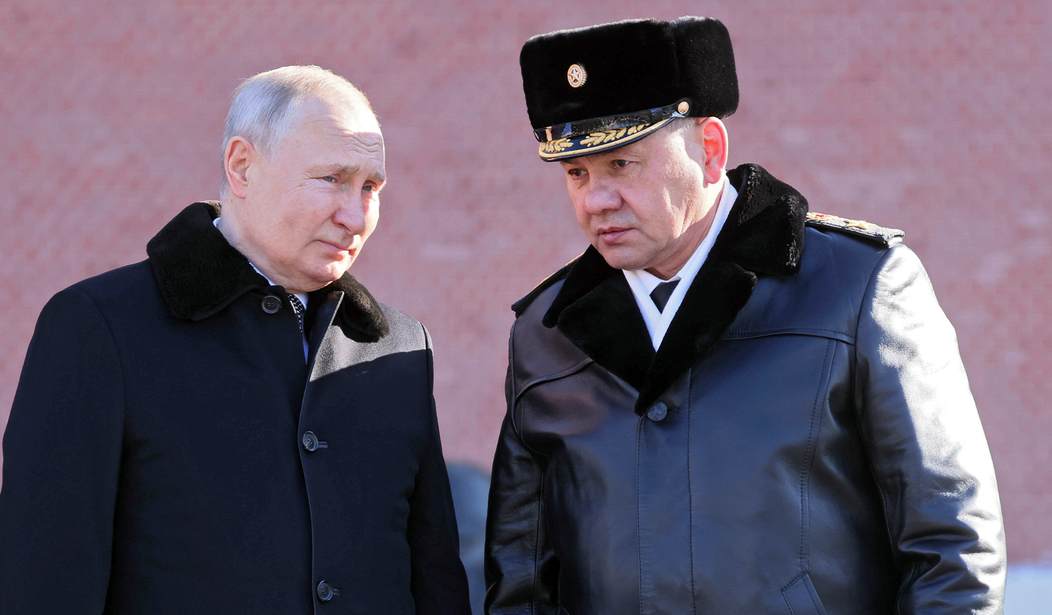Top News
Shoigu reappears, but where is Putin?

During the chaos in Russia this weekend, much of the nation’s leadership effectively disappeared. It remains unclear if Vladimir Putin is even in Moscow, though state spokesmen insist that he has remained “working inside the Kremlin.” The target of Yevgeny Prigozhin’s aborted coup attempt, Defense Minister Sergei Shoigu, similarly pulled a vanishing act on Saturday. But today he finally reappeared, showing up in Ukraine to perform an inspection of some of Russia’s troops, making sure that the media was there to cover his performance. The Defense Ministry published a video showing Shoigu meeting with high-ranking Russian Army officers at a Russian-controlled military outpost in eastern Ukraine. But that still leaves two mysteries to be solved. Where are Putin and Prigozhin? We haven’t heard a peep out of either of them yet. (Associated Press)
Russian Defense Minister Sergei Shoigu made his first public appearance since a mercenary uprising demanded his ouster, inspecting troops in Ukraine Monday in a video released by his ministry.
He’s the first of three powerful Russian leaders whose diverging interests led to the Wagner Group occupying a Russian city and marching on the capital to be seen since the revolt ended Saturday. Russian President Vladimir Putin and Wagner Group chief Yevgeny Prigozhin have made no public statements since then.
Moscow Mayor Sergey Sobyanin announced an end to the “counter-terrorism regime” imposed on the capital Saturday, during which troops with machine guns patrolled the streets and tore up roads leading into the city.
During a time of crisis, you would expect a strong leader to be addressing the nation and reassuring the people that they will be fine and that everything is under control. Over the weekend, Moscow (the capital of the nation) was placed under a “counter-terrorism regime” by the Mayor. Heavily armed troops patrolled the streets and Russian workers were tearing up the roads leading to the city. And yet Putin is nowhere to be seen. That can’t be very comforting to the citizens.
What does seem to be clear to most analysts is that nobody inside Russia benefitted from this attempted putsch. At the Wall Street Journal, Yaroslav Trofimov finds that the Russian state has “sustained lasting damage,” no matter who comes out on top in the end.
“The entire system has lost yesterday, including Prigozhin, who is also part of the system,” said Andrei Kolesnikov, a senior fellow at the Carnegie Endowment who was in Moscow on Saturday. As for Putin, he added, “it turned out that the czar is not a real czar because he couldn’t control a man from his own system who’s supposed to be under his full control.”
As a result, the authority and self-image of the Russian state has sustained lasting damage, likely fueling future challenges to its writ regardless of what happens to Prigozhin. That is especially so as the war in Ukraine, which helped precipitate the Wagner mutiny, continues raging with no end in sight, causing mounting casualties on both sides.
In matters of politics and governance, perception is often as important as reality, if not more so. If people view their government as being weak and vulnerable, challenges will inevitably arise to take advantage of that vulnerability, whether that be through military or political means. That appears to be the case with Russia at this moment.
It would be easy for people in the West to cheer for this sort of unrest in Russia, viewing the country as one of NATO’s primary adversaries. But that would be a mistake because there does not appear to be any sort of net positive coming from this situation. If Vladimir Putin remains in power over the long run (assuming he survives that long), he may slowly regain his internal credibility and control. But if he is overthrown or removed in some fashion, one of the world’s leading nuclear powers will be fully destabilized. Anyone replacing Putin in that fashion will have done so by force, and we’ve repeatedly seen how such stories have turned out in other countries, particularly the traditional banana republics of South America. The tale rarely ends well. So keep an eye on what’s happening in Russia. This crisis may not be over. In fact, it may just be beginning.
Read the full article here


















